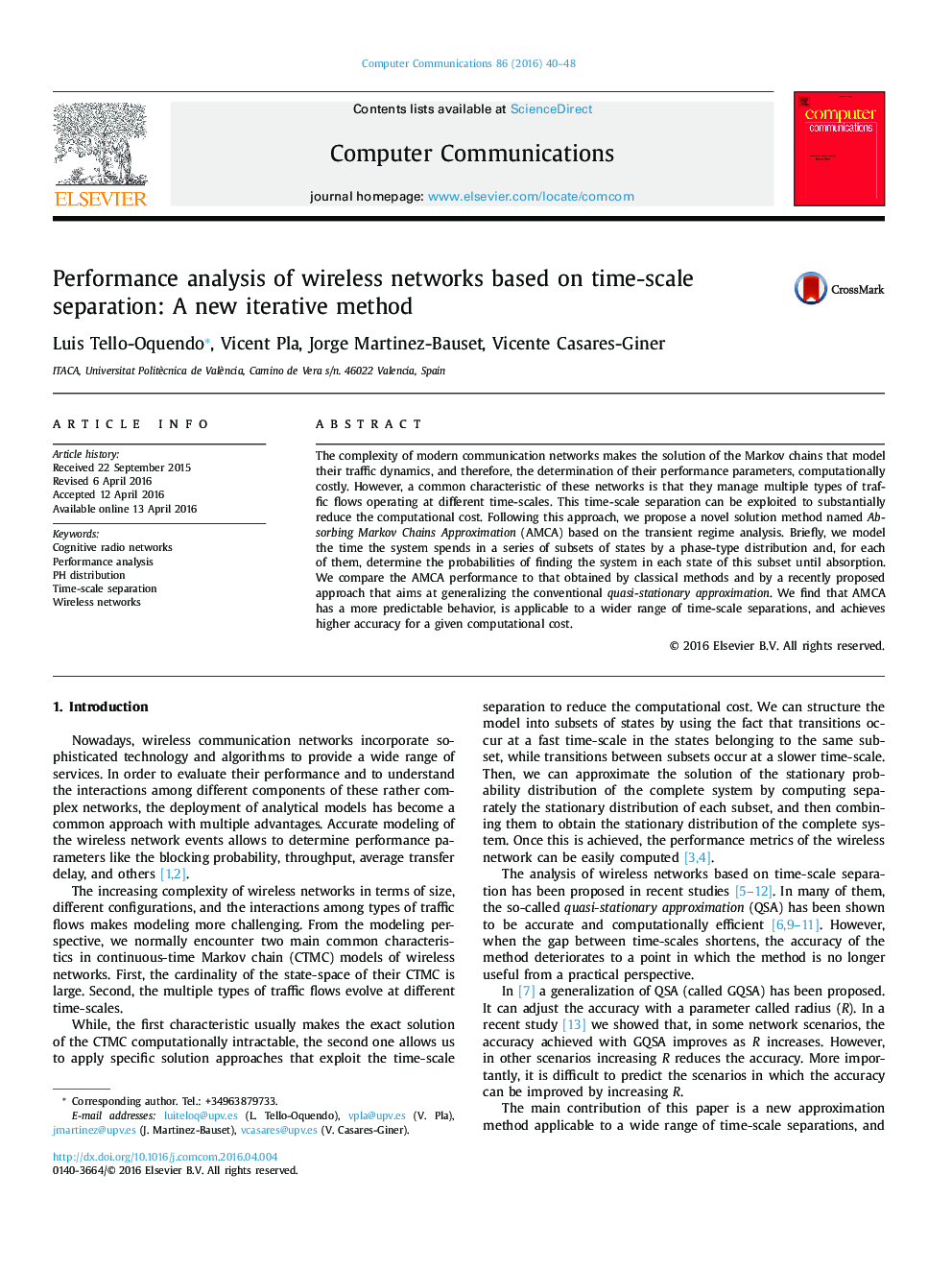| Article ID | Journal | Published Year | Pages | File Type |
|---|---|---|---|---|
| 447505 | Computer Communications | 2016 | 9 Pages |
The complexity of modern communication networks makes the solution of the Markov chains that model their traffic dynamics, and therefore, the determination of their performance parameters, computationally costly. However, a common characteristic of these networks is that they manage multiple types of traffic flows operating at different time-scales. This time-scale separation can be exploited to substantially reduce the computational cost. Following this approach, we propose a novel solution method named Absorbing Markov Chains Approximation (AMCA) based on the transient regime analysis. Briefly, we model the time the system spends in a series of subsets of states by a phase-type distribution and, for each of them, determine the probabilities of finding the system in each state of this subset until absorption. We compare the AMCA performance to that obtained by classical methods and by a recently proposed approach that aims at generalizing the conventional quasi-stationary approximation. We find that AMCA has a more predictable behavior, is applicable to a wider range of time-scale separations, and achieves higher accuracy for a given computational cost.
